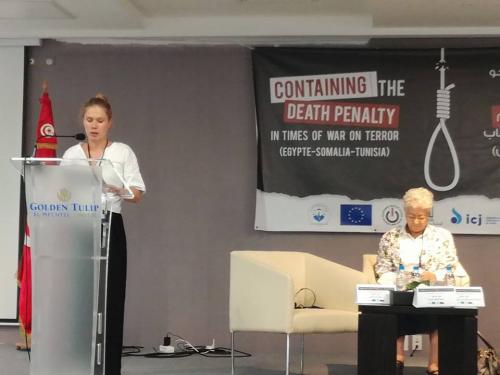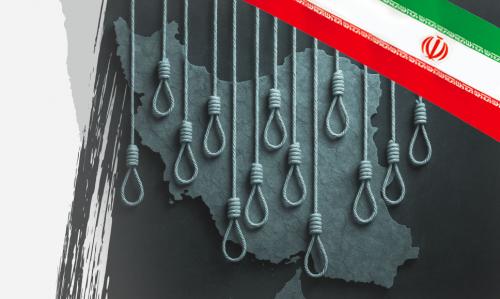21 September 2017 :
The conference on the death penalty in time of war on terrorism that ended in Tunis was unanimous in believing that the death penalty does not contain or solve the problem of terrorism.
At the event, organized by the Arab Institute for Human Rights with Hands off Cain under a project supported by the European Union, several parliamentarians, lawyers, intellectuals and human rights activists intervened.
For Elisabetta Zamparutti, treasurer of Hands off Cain, who opened the works, the battle for the abolition of the death penalty should be contextualized in that for the affirmation of the State of Law, given that 99 percent of executions focuses on authoritarian countries. Laura Harth, of the Board of Directors, recalled that top executioners last year were China, Iran, and Saudi Arabia.
Attorney Roberto Giovene di Girasole, present on behalf of the Forensic National Council, underlined the role lawyers have had in the history of Tunisia demonstrating the will to support the project.
The project involves training and information on international standards for public opinion, parliamentarians, magistrates, lawyers and journalists on the topics of the death penalty and the fair trial. The final document welcomed participation of prisons staff, and shared the activities of the project. During the meeting, it emerged that 77 people were sentenced to death in Tunisia, with an escalation of capital punishments from 2011 onwards, reaching a record of 44 death sentences in 2016. The capital crimes are forty-five, extending to terrorism with the 2015 law.
The president of the Arab Human Rights Institute, Abdelbasset Ben Hassan, stressed "the fragility of the human rights culture in Tunisia". For him, "the death penalty is the result of a philosophy of punishment that has evolved from the Middle Ages," and terrorism can not be addressed by using the "easiest way".
For Chokri Latif, president of the Tunisian Coalition Against The Death Penalty, terrorism has become a global phenomenon that affects not only Arab and Islamic countries, but also the great Western capitals.
"The phenomenon of terrorism has become a pretext for bullying to human rights and to questioning emerging democracy in some Arab countries," he added. He said that "the death penalty against terrorists is a reward in their eyes, because what they aspire is death."
Meanwhile, parliamentarian Leila Hamrouni, co-ordinator of the parliamentary network for the abolition of the death penalty, argued that "the modern state must protect its citizens, even the worst, and the death penalty is not a solution to mitigate the terrorism".
More realistically, parliamentarian Bochra Belhaj Hamida noted that "the abolition of the death penalty is impossible today in Tunisia, but we can limit the death penalty or introduce a moratorium" in executing death sentences.










